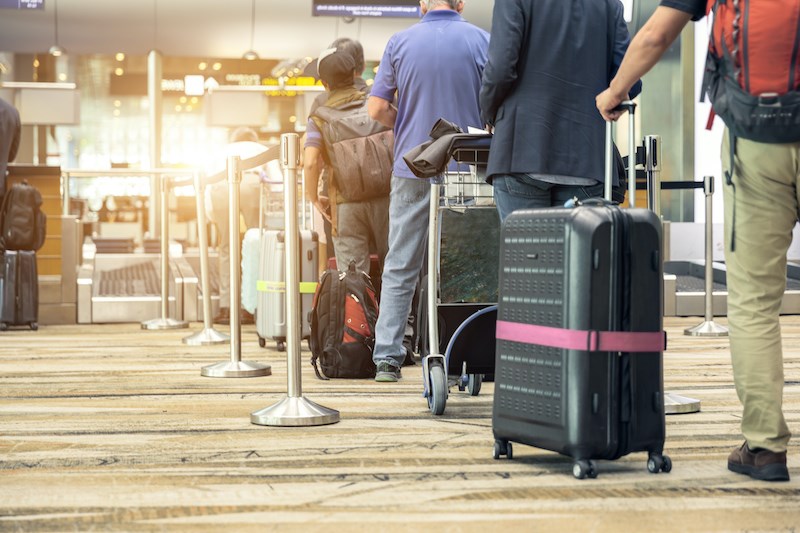Canadians who have been itching to travel outside of the country have been given the green light by the federal government, albeit with some cautionary guidance.
The Government of Canada quietly lifted the country's non-essential travel advisory on Oct. 22, which had been in place since March 13, 2020, at the onset of the COVID-19 pandemic.
But while the advisory has been lifted, federal officials say Canadians may face challenges travelling during the pandemic.
Canada continued to provide consular services to citizens abroad while the nonessential advisory was in place, explains an emailed statement from Global Affairs Canada. Now, the federal department will continue to offer its services in a "consistent, fair and non-discriminatory manner" as the advisory has been lifted.
Since each consular case is unique, however, a "tailored approach is often required" and officials must "adapt their interventions to each local context and circumstance."
Several COVID-19-related travel restrictions may pose problems for international travellers. Travel restrictions may be imposed suddenly, and airlines may suspend or reduce flights without notice. Travel plans may be severely disrupted, making it difficult to return home.
Canada's destination-based travel approach
A spokesperson from the Public Health Agency of Canada tells Vancouver Is Awesome that the update to the global travel health notice was a first step as the Government of Canada’s travel advice "transitions to a destination-based approach over the coming weeks," which will help Canadians make informed decisions about their future travel plans.
While the government publishes travel advice and recommendations, it underscores that "the decision to travel is the sole responsibility of the individual." Updated travel advisories can be found on the Travel Advice and Advisories website.
All travellers must stay informed of COVID-19 activity at their destination, which can vary significantly from one country to another and within regions of a country, and can change quickly.
Travellers can consult the WHO website for additional information with respect to their destination country as well as the country's website for their entry requirements.
Canadians abroad requiring emergency consular assistance should contact the nearest Government of Canada office, or call Global Affairs Canada’s 24/7 Emergency Watch and Response Centre at +1 613 996 8885 (collect calls are accepted where available). An email can also be sent to [email protected]. Canadian travellers should register with the Registration of Canadians Abroad service and follow @TravelGoC on social media to get the latest updates.
The Government of Canada will continue to assess available data and indicators—including the vaccination rate of Canadians, the border test positivity rate, and the epidemiological situation globally and in Canada―and adjust advice as needed.
Other considerations for Canadian travellers
Vaccinated travellers, although better protected especially against serious illness, may also be at risk of infection from coronavirus.
All travellers, regardless of their vaccination status, should use personal protective measures (like wearing a mask, washing hands and maintaining physical distancing where possible), and also follow any additional local public health measures while travelling.
Travellers should confirm with their insurance broker that their travel health insurance policy covers medical care related to COVID-19. They should not depend on the Government of Canada if they find themselves forced to change their travel plans. Further, the government will not cover expenses incurred abroad for Canadian citizens who are unable to meet the entry requirements.
Find out how to get your federal proof of vaccination for travel.



